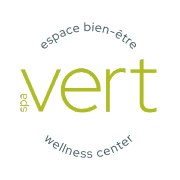As the air’s cooled and the snow has fallen, we embrace the Metal Element in Traditional Chinese Medicine. This element is linked to the Lung and Large Intestine meridians and they teach us how to take in what truly nourishes us and how to let go of what we no longer need.
On a physical level, balanced Lung Qi (energy) supports healthy breathing, immunity, and the clarity of our skin and mucous membranes. The Large Intestine helps the body release waste and maintain openness and space inside. Together, they represent exchange: receiving life with each breath, and releasing what the body, mind, or heart does not need to carry.
Emotionally, this element is connected to attachment, grief, and boundaries. Just as the lungs meet the outside world through the air we breathe, and the colon releases what is no longer useful, our emotional life also moves in cycles of connection and release. When the Metal Element is balanced, we are able to open our hearts to others in meaningful ways, and we are also able to step back when a chapter has ended or when something no longer supports our well-being. We can appreciate what was, feel the natural sadness of change, and gently let go.
When the Metal Element is not flowing well, we may hold on too tightly. Grief may linger rather than soften. The chest or throat may feel tight, breath may feel shallow, sighing may become common, and sadness or worry may arise more easily. Some people may notice they become more self-critical, more tender-hearted in a way that feels heavy, or more prone to tears. In the body, this emotional holding often shows up as tension across the upper back and shoulders, especially along the inner edges of the shoulder blades. This region contains acupuncture points deeply connected to emotional release, which is why tension here can feel stubborn even with massage or stretching. When the emotion behind the tension has not yet been felt or expressed, the muscles continue to hold the memory.
It’s important to remember that grief itself is not the problem. Feeling is human. The issue arises only when emotion is unable to move. Allowing grief, speaking about it with someone we trust, journaling, creating small personal rituals of release, or practicing moments of quiet meditation can help emotions pass through instead of becoming stuck. Even something as simple as slow, conscious breathing can help soften the weight the lungs may be carrying. In practice, it is common to see that people who have difficulty emotionally letting go may also experience constipation and may struggle to clear respiratory symptoms such as coughs or lingering chest congestion. The body mirrors the heart.
As the seasons shift, our food naturally shifts as well. Autumn calls for warmer, heartier meals rather than the cooling, light foods of summer. Root vegetables become grounding and satisfying when roasted, baked or slowly stewed. Increasing gentle sour flavors can help tone and support the Lung and Large Intestine; this can include things such as naturally leavened sourdough, citrus, fermented vegetables, yogurt, rose hip tea, and other lightly tangy foods. Traditional wisdom also recognizes many white foods as supportive to the lungs, such as onions, garlic, cabbage, daikon, and pears.
For those who notice dryness in the throat, skin, or lungs during this season, moistening foods can be deeply comforting. Ingredients such as tofu, tempeh, barley, millet, pears, apples, seaweeds, spinach, almonds, pine nuts, and sesame can gently restore moisture. In cases of deeper dryness, small amounts of goat or sheep dairy may provide nourishing support. At the same time, foods and drinks that amplify dryness, such as strong coffee, hot peppers, and overly warming spices, are best reduced when the body feels tight, raw, or dry.
Just as important as what we eat is how we eat. When we sit down in a hurry or eat while distracted, the body cannot fully receive nourishment no matter how healthy the food may be. Relaxation allows digestion to unfold. Taking a moment to breathe before eating, chewing with presence, and allowing ourselves to taste and receive our meals can transform the experience of nourishment itself.
Autumn invites us to reflect gently on what we are holding. What is still nourishing us? And what has already completed its role in our life? Like the trees releasing their leaves, letting go is not a loss of identity. It is a return to what is essential, so that space is made for what is coming next.
When we allow ourselves to breathe deeply, feel honestly, and release gradually, we return to ourselves with more clarity and softness. And this is the quiet gift of the Metal Element: the reminder that letting go is not about abandoning what was meaningful. It is about honouring it, and then creating space for what allows us to grow.
